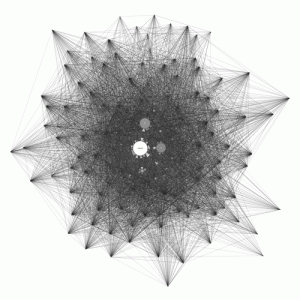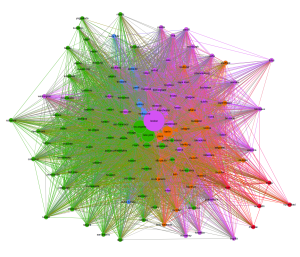Cross-posted from the #culturalvalue Initiative. [EDIT 13 Dec 2013:] Reposted by request on the London School of Economics Impact of Social Sciences blog on 13 December under the heading, ‘”Intrinsic value” understood as a dynamic social process offers a productive alternative to defensive instrumentalism’.
[EDIT 13 Dec 2013:] [Introduction to the Impact of Social Sciences re-posting]: Drawing from Pierre Bourdieu’s work on symbolic capital, wider network analysis frameworks and his own research into the production of cultural value, Daniel Allington outlines how the value of a cultural form is ultimately and fundamentally a social process. While this piece was originally written to engage with cultural policy research and practice communities, a sociological perspective on the production, transmission and propagation of ‘intrinsic value’ demonstrates the complexity of impact and the interdisciplinary potential of understanding these social relationships.
This originally appeared on The #culturalvalue Initiative under the title of ‘Intrinsically cultural value: a sociological perspective’ and is reposted with permission.
[Introduction by Eleonora Belfiore to the original #culturalvalue version]: The #culturalvalue initiative has been exploring the form of the mini-essay for those contributors who want to contribute a longer, more complex or elaborate set of reflections to the debate around cultural value. The mini-essay has proved a popular format and it especially lends itself – I would argue – to guest posts such as this one, kindly contributed by Daniel Allington of the Open University, which aim to bring new methodological perspectives to the debate. Daniel’s piece combines a set of premises derived from Bourdieu on what symbolic capital is and how it works to then merge it with insights from network analysis. These are two set of sociological approaches that do not always mix, and therefore there is a very exciting, experimental flavour to Daniel’s argument. Part of the excitement is also that these sociological insights are still relatively unexplored by my own ‘cultural value research community’, which is that broad and variegated area of research that goes under the label ‘cultural policy studies’. And yet, there is much in this post that is of relevance to the cultural policy research and practice communities, and this is why it’s very exciting to be able to encourage a wider disciplinary exchange on a topic of shared interest.
*** Continue reading “Intrinsically cultural value: a sociological perspective”

